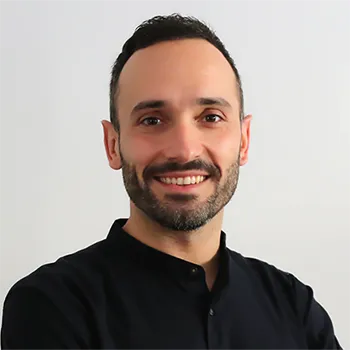
What first attracted you to the field of Chemistry?
I was not attracted just to Chemistry but also to Physics and Biology. I was always intrigued by fundamental building blocks of matter and living organisms. Trying to understand how things work in the physical world around us, or why materials have different properties arising from their molecular scale. I was also attracted by Engineering. I like anything connected with design, and enjoy building things, so I ended up studying Chemical Engineering. Then, from Engineering I ended working on Computational Chemistry. Now, I try to link both disciplines in my research.
What do you think is the biggest misconception people have about Chemistry?
I am not sure there is a biggest misconception. There are some misconceptions for sure, for instance chemistry is sometimes easily associated with pollution and harmful chemicals, as if chemistry would be a synonym of something bad, without realising that everything “good” around us (and even ourselves) is chemistry, good, colourful, and beautiful chemistry.
What's the biggest mystery in science you'd love to solve or see solved?
I do not think I am on my way to solve any big mystery in science, but I hope to make a humble contribution in the field in which I carry out my research. I also believe that the biggest mysteries in science are beyond our ability to solve them. Understanding the Universe, its origin, the functioning of Nature, or even our brain… All these impose many big and fundamental questions whose complexity is beyond our capacity.
I believe we can only try to reach some better understanding that provides meaning to our existence while contributing to build a better world for us and the generations to come. However, seeing vaccines for cancer, and finding more and more cures for it would be lovely. Or a safe, affordable, and clean nuclear fusion energy would be great too. These are not fundamental questions but would be great achievements for humans.